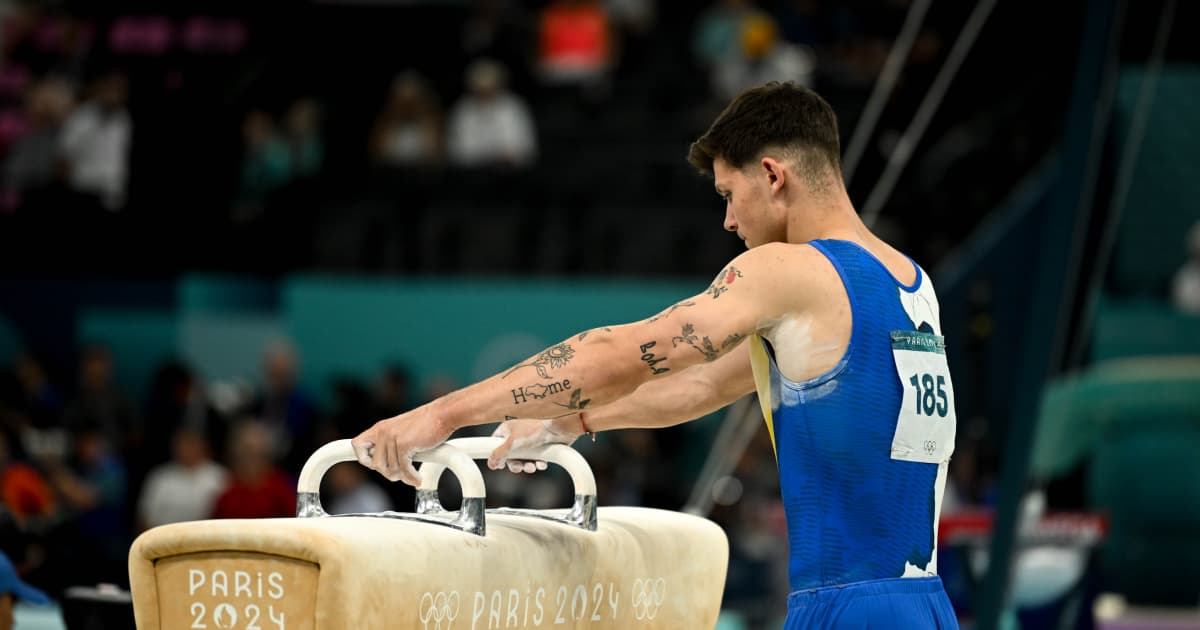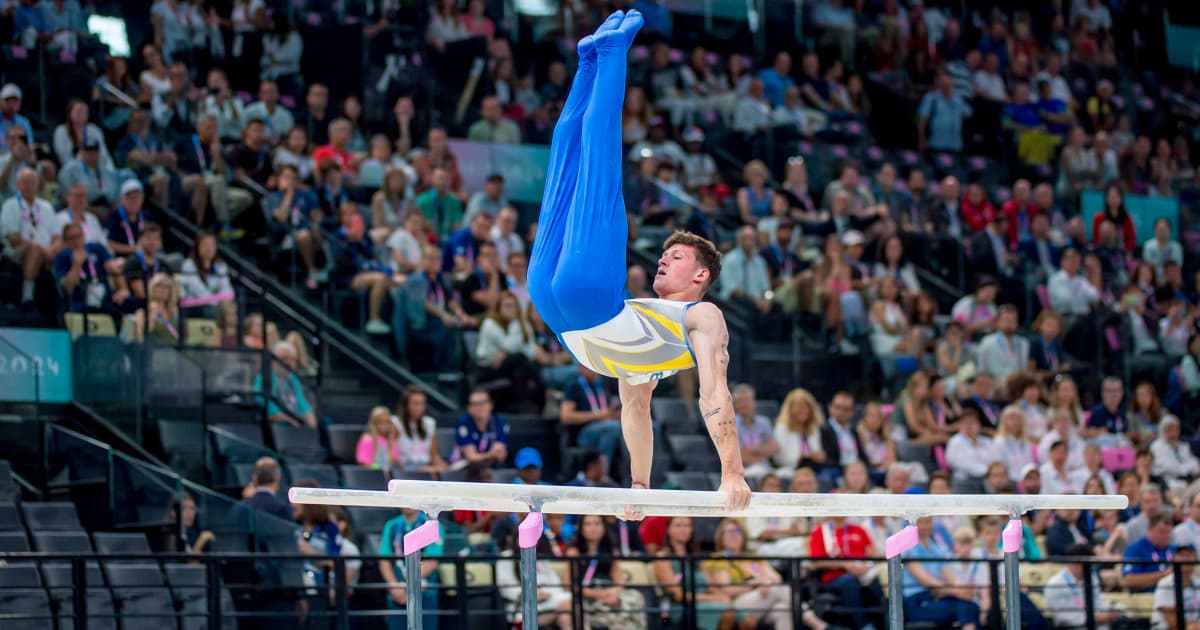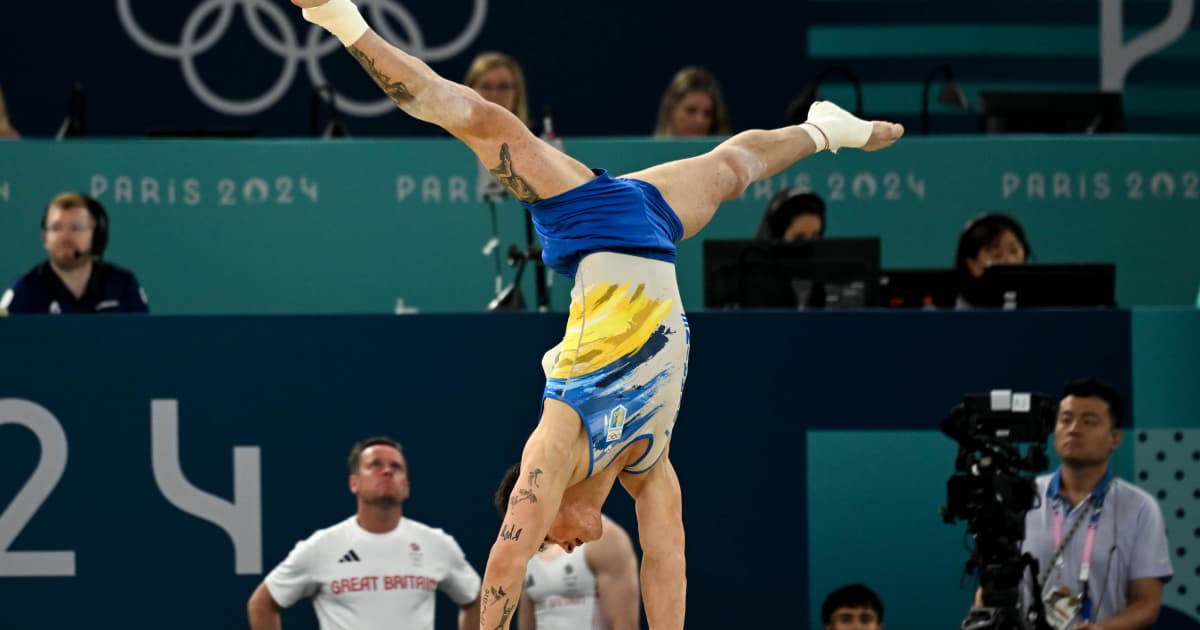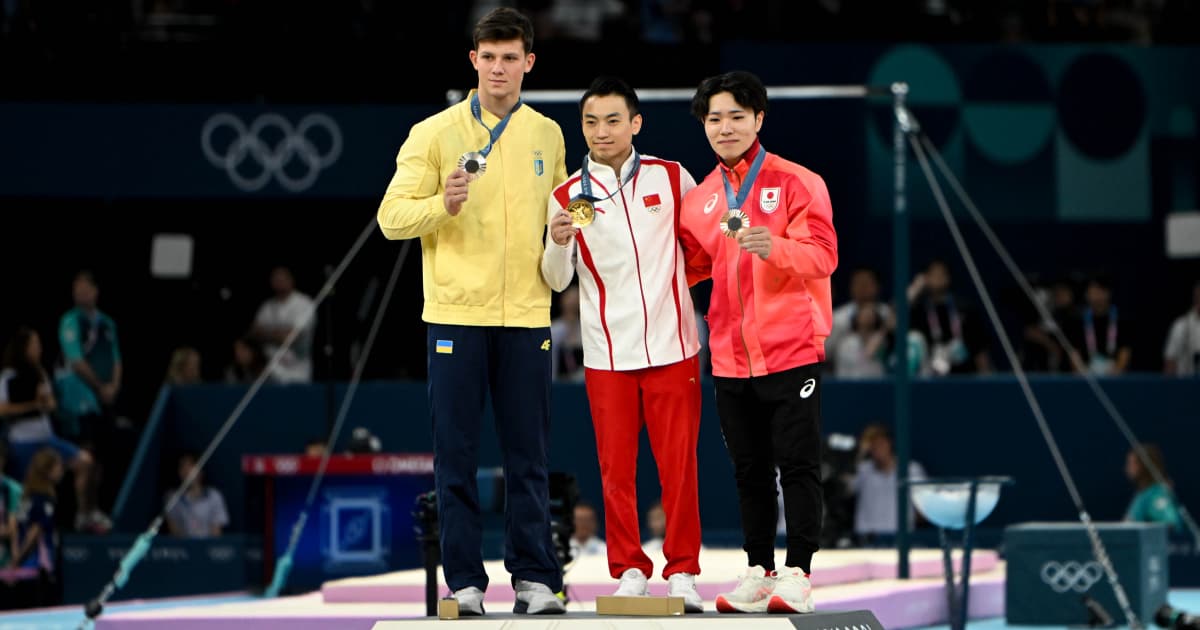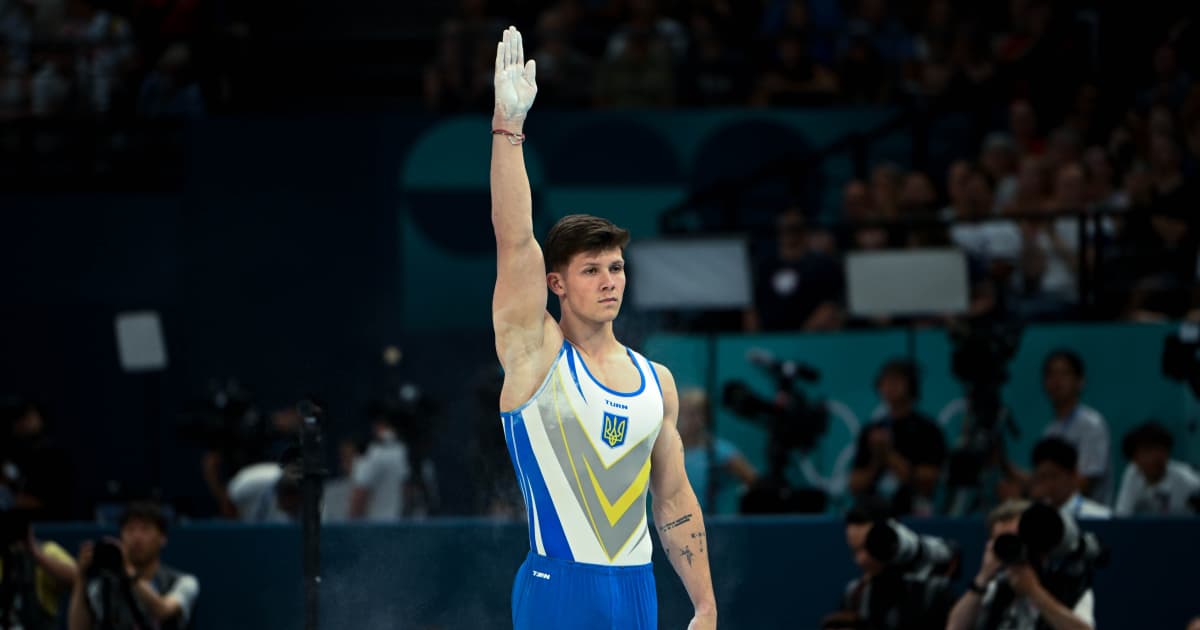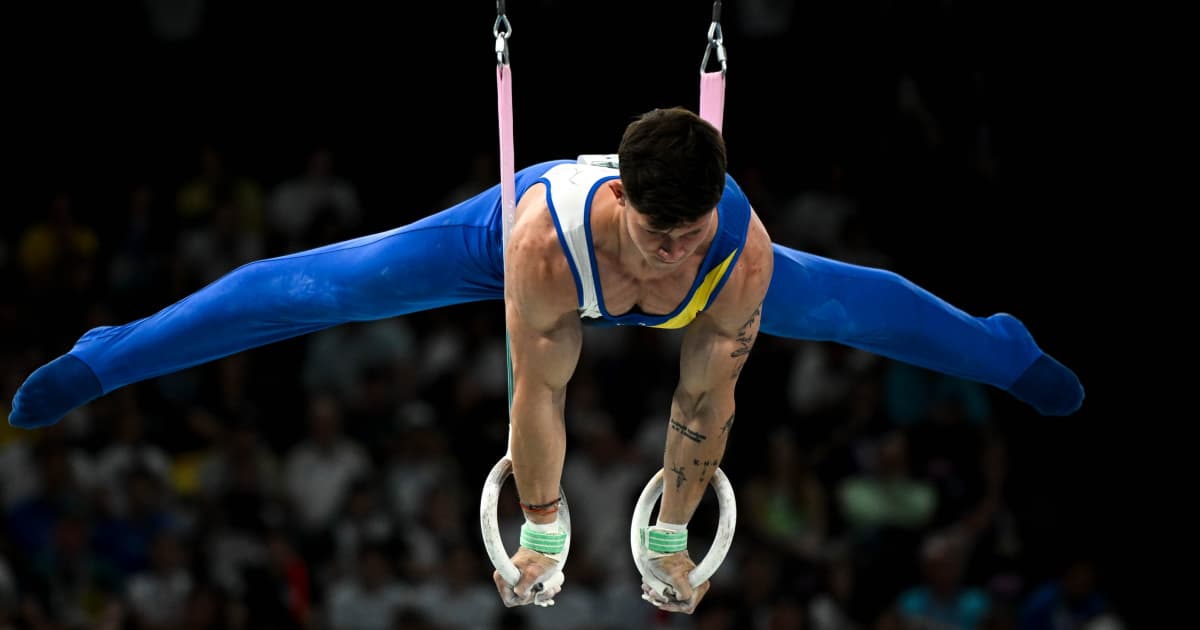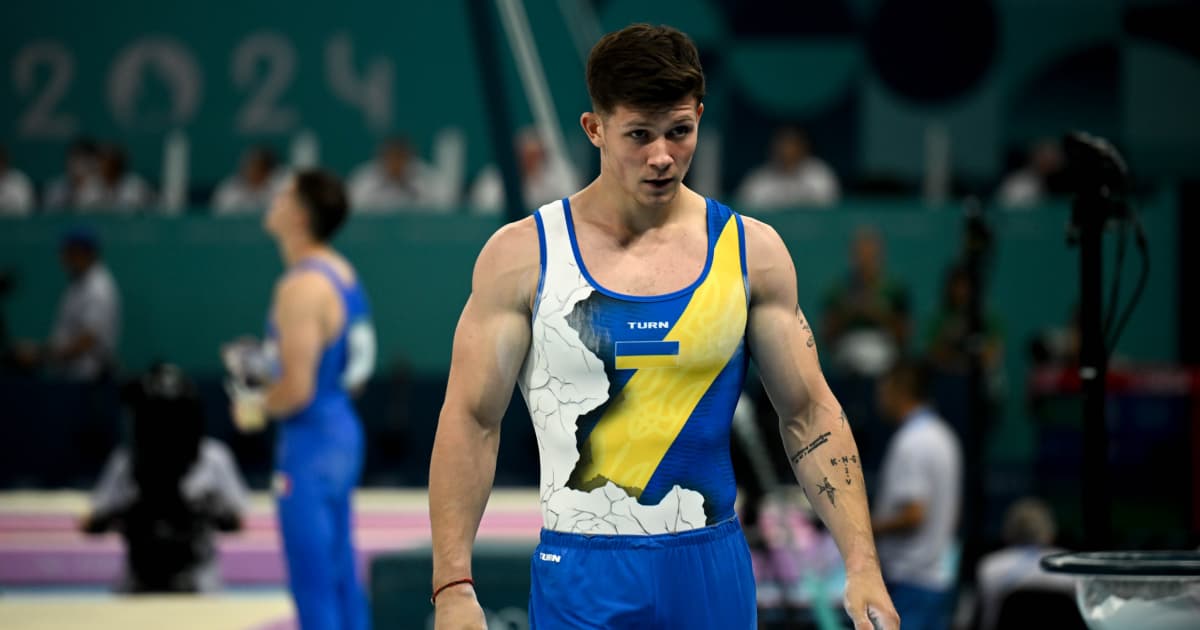"I Dream of Winning the World Championship Gold" — Interview with Olympic Medalist Illia Kovtun
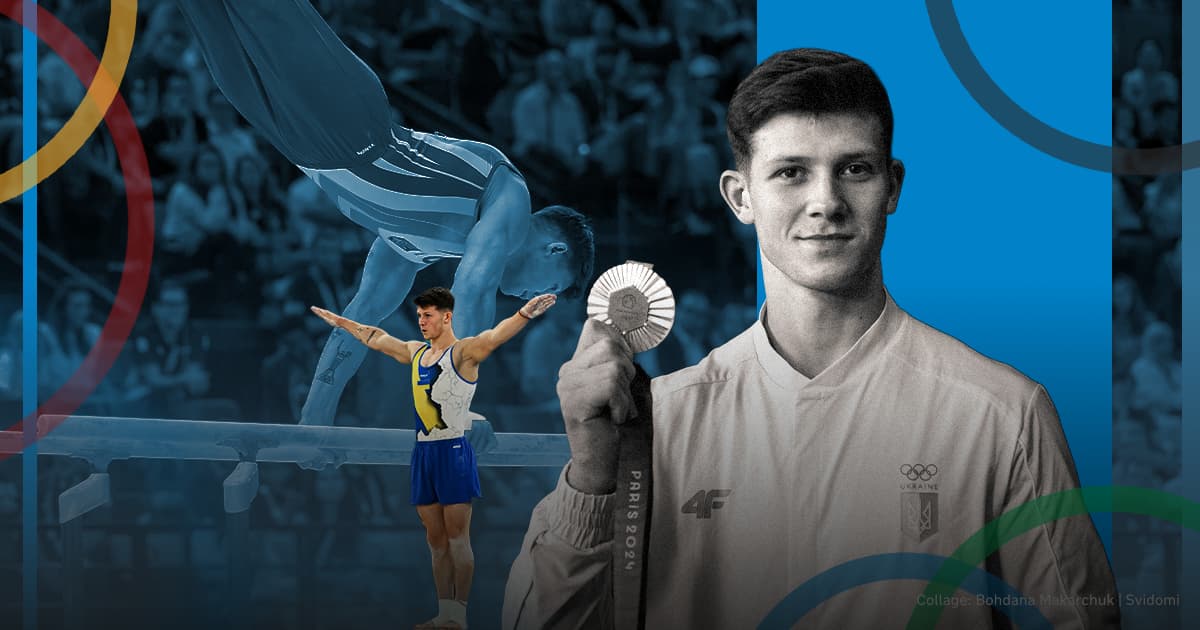
Illia Kovtun, a 21-year-old gymnast, won a silver medal on the parallel bars at the Olympic Games. He is also a multiple medalist at the World and European Championships. This year, Illia won Ukraine's first and only medal in artistic gymnastics in the last two cycles despite having recently undergone surgery.
Read about his recovery from surgery, return to Ukraine, and an unpleasant situation with Russians at the World Cup competition in a new interview from Svidomi's special project.
How did you get started in gymnastics?
I chose this sport because my older sister practiced it, and it was convenient for my parents to take us both to the training. So, 16 years ago, I came to the Children and Youth Sports School "Olimpia" in Cherkasy to my first coach, Iryna Volodymyrivna Horbacheva. She is still training me.
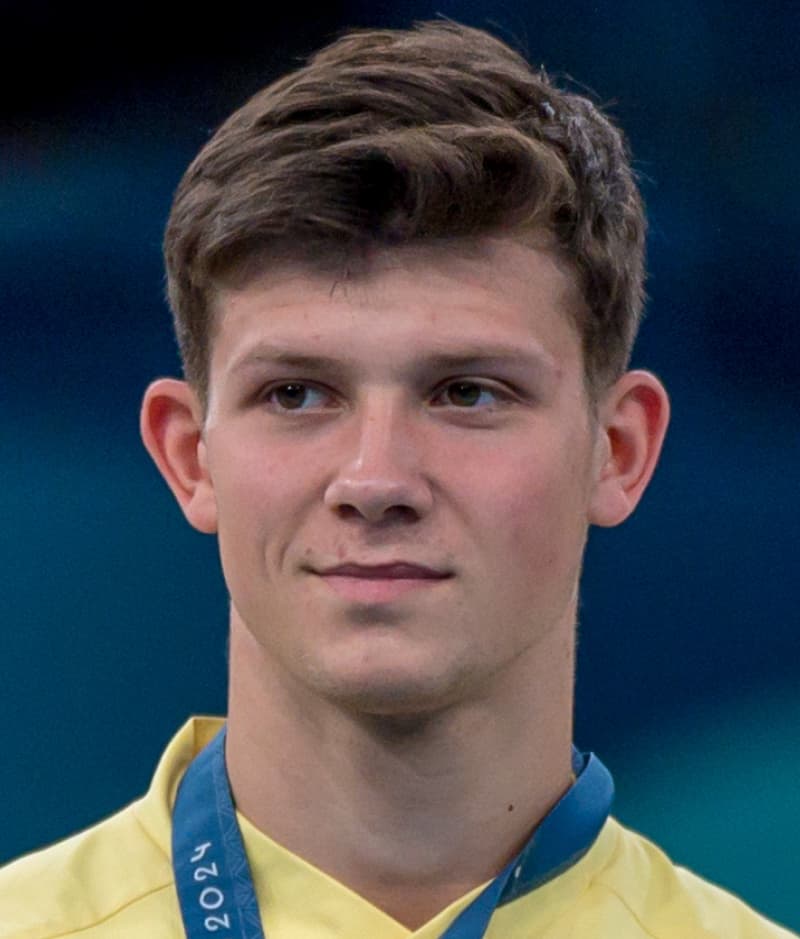
By the way, at first, I didn't want to go to gymnastics. But with time, I started to like it. When I was 13-14, I began to travel abroad for competitions. That's when I realized that gymnastics is what I want to do.
You had a foot injury and even had to undergo surgery. What exactly happened, and how are you recovering now?
In the summer of 2023, six months before the World Cup, I injured my right foot several times during training. We continued with regular intensive training, but the pain got worse. I first consulted doctors in Croatia. They offered me two options: to have surgery right away and miss the World Cup or to have surgery after the World Cup. The team needed me, so I decided to continue training under strong painkillers.
After we qualified, I consulted doctors from Israel, Italy, Germany, and Japan. All the specialists said that if I had surgery in December, I would have time to prepare for the Olympics.
The surgery fixed the bone problems, but the ligaments and tendons were left untreated so I could recover in time for the Olympics. However, while preparing for the competitions, I re-injured my right foot. I had to rehab and prepare for the Olympics at the same time.
I'm feeling better now and continuing to train in Croatia. Closer to the New Year, I'll start the full recovery of my foot.
How did the full-scale war affect your preparation for the Olympics?
When the full-scale invasion began, my team and I were at the World Gymnastics Championships in Cottbus, Germany. From there, we went to Qatar, Baku, and Cairo. After that, we spent another three months in Italy for training camps. We've been training in Croatia for almost two years now.
I am staying here because it's challenging to travel abroad from Ukraine for competitions – one day by train and another half day by plane. It takes a lot of time and energy. Constant traveling like that would be hard, especially since I have about 25 competitions planned for the year.
The second reason I'm not going back to Ukraine right now is my foot recovery. The doctor who performed my surgery is in Croatia, and so are the physiotherapists who helped me. They're already familiar with my case and will provide the best care.
This is your second Olympics. Did your previous experience help you at this year's games?
I was 18 years old when I went to my first Olympics. That was my start in adult gymnastics. But I couldn't draw many conclusions because of my young age. The Olympics didn't help me grow as much as the competitions that followed, especially the World Championships.
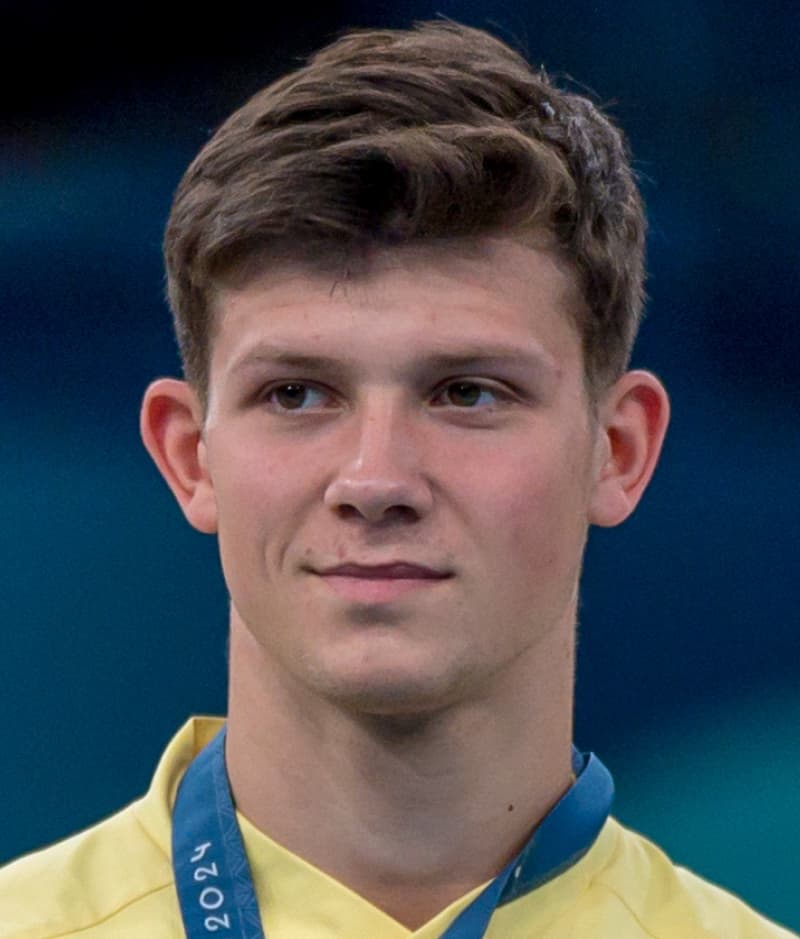
I realized that you have to go to competitions thinking that you're going to be first and win a medal. But before that, you have to dedicate 100% of your time to training.
It's well known that the rules for gymnastics at the Olympics are about to change. What is the reason for this?
Every four years after the Olympic Games, the rules of gymnastics change. Now, all the athletes go from 10 elements to 8 elements. For each routine, the rules change on each apparatus as well.
This is done to keep the audience from getting bored. Imagine athletes doing the same routine for 20 years. Gymnastics fans wouldn't watch the same thing for 20 years in a row. As a result, interest in the sport would decline. So, change is necessary. It's extra pressure, but it's exciting for the athletes.
What is the current situation with the financing of artistic gymnastics in Ukraine?
We travel to competitions without any problems. We've participated in all stages of the World Cup, the European Championship, and the World Championship. My foreign friends, sports clubs, and the president of the Ukrainian Gymnastics Federation, Oleksandr Sukhomlyn, helped me with the operation and recovery. However, the Ministry of Youth and Sports replied that they had no funds to help athletes recover.
Have you felt support from foreigners because of the ongoing war in Ukraine?
We got a lot of support. Other athletes even gave us bandages and tapes. They said we needed them [bandages and tapes] more than they did because their country was safe and they could buy more. A lot of people gave moral support. We're all friends; we talk at competitions and outside of them, and even visit each other.
Also, in Croatia, we currently live and eat at the expense of the gym where we train. Croatians remember the war they had 30 years ago. They understand Ukrainians very well and want to help us.
You once said that your medals are more for your coach, Iryna Horbacheva, than for you. Can you explain why?
Because it's impossible to achieve great results without a coach. An athlete without a coach doesn't exist. Training plans, recovery, vitamins — it's all the coach's job. In total, 90% of the effort comes from your coach, and your 10% is just showing up at the gym and training at 100%.
In artistic gymnastics, athletes from Asian countries regularly win medals. Is this a coincidence or a pattern?
Our techniques and schools are very different from the Asian ones. They're smaller, lighter, and stronger. European men are taller, so it's a bit harder for us. But we try very hard to show worthy results. But these are just physiological nuances. For example, at this year's Olympics, many European countries won medals in artistic gymnastics.
Russians are still competing in the Olympics, albeit under a neutral flag. What is your attitude to this?
I'm against it because I had a very unpleasant experience. In March 2022, we were in Qatar for the World Cup, where we won gold. The Russians were there as well. We immediately decided that we wouldn't cancel our participation in the competition to proudly represent our country. But we still had to compete with the Russians. This happened just as Russian tanks began to enter Ukraine.
One of the Russian athletes had a Russian emblem on his uniform, and he was told to cover it up. He covered it with a bandage, making the letter "Z". We didn't notice it at first. After the competition, my phone was flooded with messages. On social media, everyone was talking about the Russian athlete standing on the podium with the letter "Z" (a symbol in the Russian military, which has become a pro-war emblem supporting Russia's invasion of Ukraine — ed.). It was very upsetting.
You already have many awards from various championships and the Olympics. What do you still want to achieve?
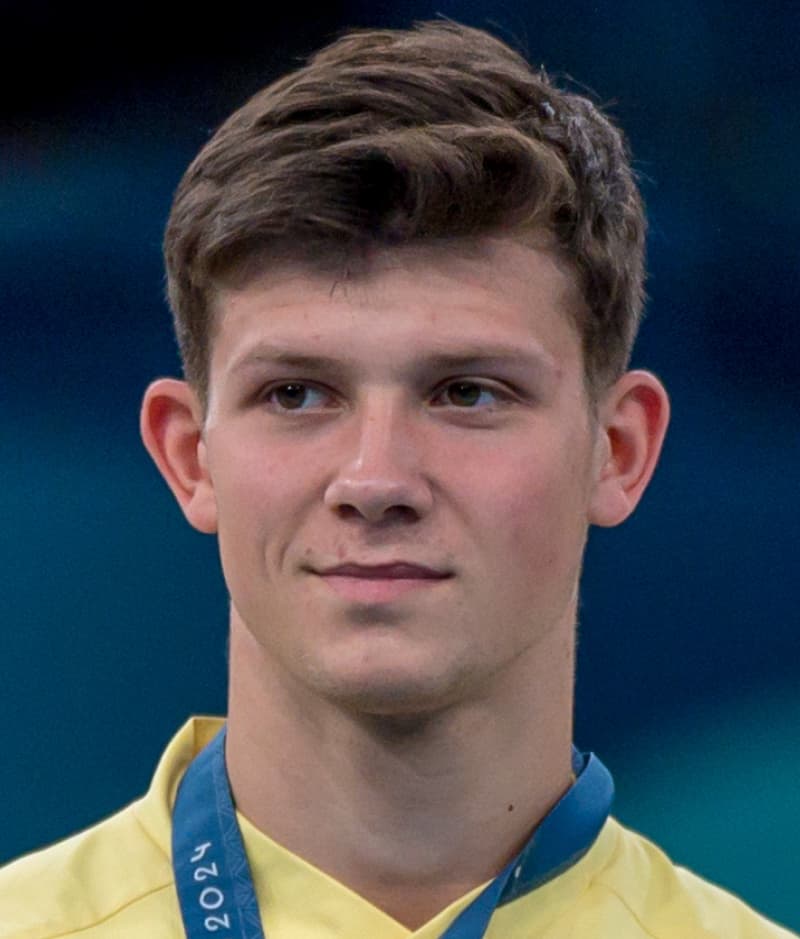
My dream is to win a gold medal at the World Championships.
I would also like to win a gold medal at the Olympic Games. After that, I'll work on maintaining my ranking. As for long-term goals, I've just finished my bachelor's degree to become a coach. This year or next, I'll apply for a master's program.
Svidomi previously published a story about Olympic gold medalist and fencer Yuliia Bakastova.

